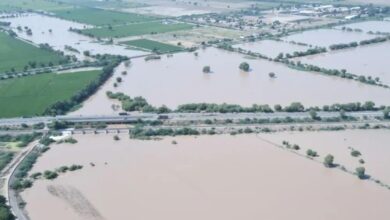Waterbodies Get A Fresh Lease Of Life In R’bore Tiger Reserve | Jaipur News

Jaipur: Several natural and artificial waterbodies inside Ranthambore Tiger Reserve (RTR), which had been in a shambles due to both neglect and natural decay over the years, have been given a fresh lease of life by the forest department.
With the tiger reserve facing an acute water crisis, the forest department decided to undertake restoration work of the waterbodies in RTR to maintain ecological balance in a natural way. DFO Mahendra Sharma, who spearheaded the project of revival of the waterbodies, said it has helped the tiger population in many places.
“Waterbodies at many places, especially on Dangs (plateaus), which earlier had water retention capacity for nine to ten months a year depending on the rainfall, now retain water for entire 12 months. This has helped accommodate more tigers in the area, which has reduced the probability of territorial conflicts among tigers,” said Sharma. Existing waterbodies in RTR used to be undervalued for long as the water supply system through diesel pumps and tankers eclipsed their importance. Then, under a comprehensive plan in the reserve, the forest department began renovating dilapidated baodis and cleaning of wells like Dudh Baodi, Dhauli Baodi, Thumka Baodi and Dev ki Kui.
Repair and renovation of water storage structures at places like Kachida, Bhadlav, Parso Ki Talai, Sukhi Talai, Pili Talai, Gopal Sagar, Indala Talab, Udaitalab, Amreshwar Talai, Amaghati and Tuti ka Nala has now made the reserve self-sufficient in water. The forest department spent Rs 1.5 cr on this project in a span of one year.
Spread over an area of 1,334 sq km, RTR comprises 200 water points, including 120 natural ones. It is claimed that RTR-I has achieved the target of having the entire critical tiger habitat (CTH), having an area of around 640 sqkm, free from tanker or diesel engine-based water distribution. With this, noise and air pollution has been considerably checked and RTR’s overall carbon footprint has reduced.
Officials said the renovation of water bodies would ensure the forest department saves approximately Rs 60 lakh per annum on tanker and diesel. Moreover, unlike the water in tankers, it is quality water that is made available without pollution. “Our efforts are fully in line with sustainable development strategy. Restoration of anicuts and digging of pits will ensure that water that gets dried up during peak summer is available without much support from external sources,” said ACF Manas Singh.
FacebookTwitterInstagramKOO APPYOUTUBE




